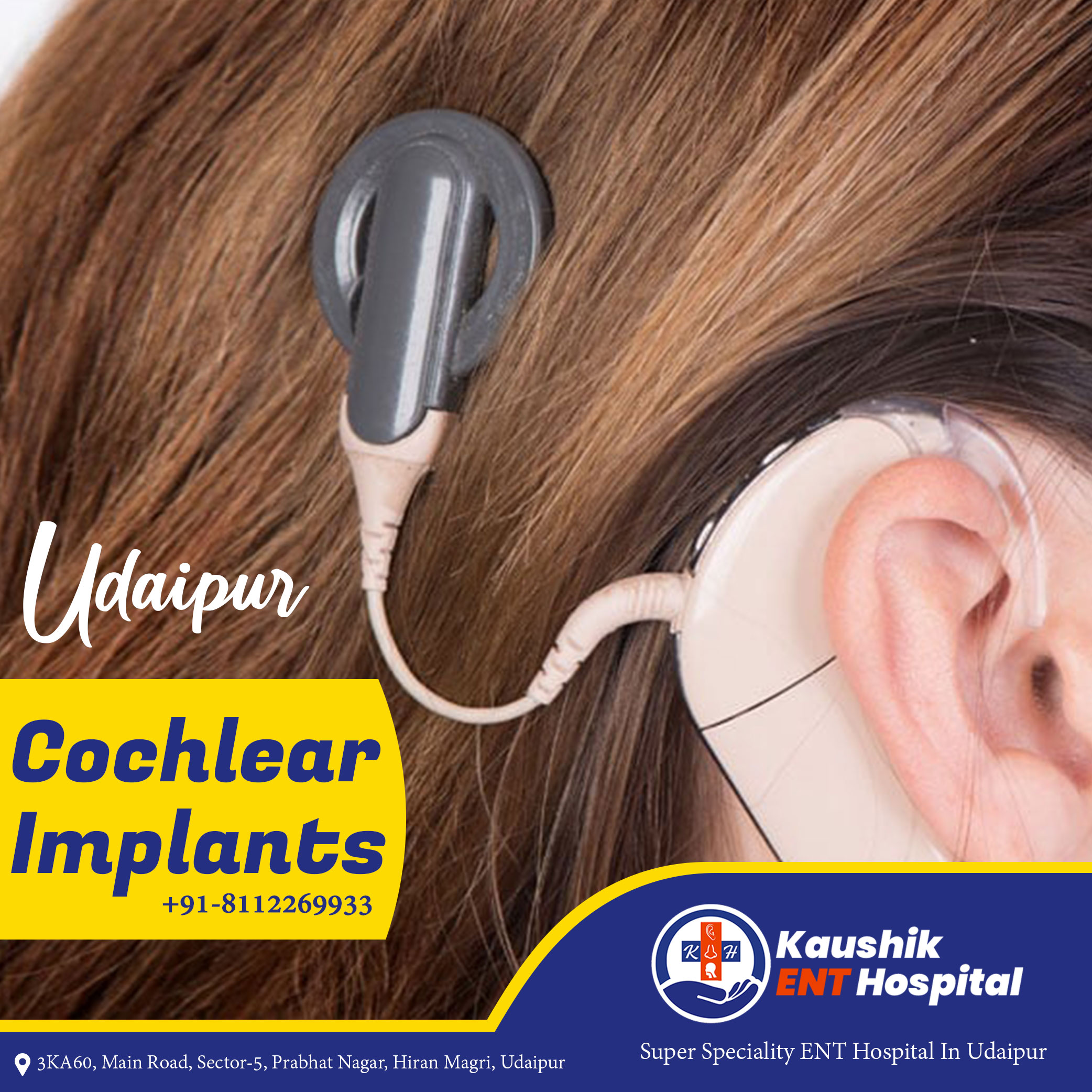A cochlear implant is an electronic device that improves hearing. It can be an option for people who have severe hearing loss from inner-ear damage who are not able to hear well with hearing aids.
What is a Cochlear Implant?
A cochlear implant is an electronic device that improves hearing. It can be an option for people who have severe hearing loss from inner-ear damage who are not able to hear well with hearing aids.
Unlike hearing aids, which amplify sound, a cochlear implant bypasses damaged portions of the ear to deliver sound signals to the hearing (auditory) nerve.
Cochlear implants use a sound processor that fits behind the ear. The processor captures sound signals and sends them to a receiver implanted under the skin behind the ear. The receiver sends the signals to electrodes implanted in the snail-shaped inner ear (cochlea).
The signals stimulate the auditory nerve, which then directs the signals to the brain. The brain interprets those signals as sounds, though these sounds won’t be just like natural hearing.
It takes time and training to learn to interpret the signals received from a cochlear implant. Within 3 to 6 months of use, most people with cochlear implants make considerable gains in understanding speech.
Why it’s done?
Cochlear implants can improve hearing in people with severe hearing loss who are no longer helped by using hearing aids. Cochlear implants can improve their communication and quality of life.
Cochlear implants may be placed in one ear (unilateral) or both ears (bilateral). Adults will often have one cochlear implant and one hearing aid at first. Adults may then progress to two cochlear implants as the hearing loss advances in the hearing aid ear. Cochlear implants are often placed in both ears at the same time in children with bilateral severe hearing loss — particularly for infants and children who are learning to speak and process language.
Adults of any age and children who are as young as 6 to 12 months old can benefit from cochlear implants.
People who have cochlear implants report improved:
- Ability to hear speech without needing visual cues such as reading lips
- Recognition of everyday environmental sounds
- Ability to listen in a noisy environment
- Ability to find where sounds are coming from
- Ability to hear television programs, music and telephone conversations
- Symptoms of ringing or buzzing (tinnitus) in the implanted ear
To be eligible for a cochlear implant, you must have:
- Hearing loss that interrupts spoken communication
- Limited benefit from hearing aids as determined by specialized hearing tests
- Motivation to participate in hearing rehabilitation and be part of the hearing world
- Realistic expectations of what cochlear implants can and can’t do for hearing
How cochlear implant surgery is done?
Your ENT surgeon will make a small cut (incision) behind your ear, and form a small hole in the portion of skull bone (mastoid) where the internal device rests.
Your ENT surgeon will then create a small opening in the cochlea in order to thread the electrode of the internal device. The skin incision is stitched closed so that the internal device is under your skin.
What to expect after the procedure?
For a short time, you or your child might experience:
- Pressure or discomfort over the ear that has the device implanted
- Dizziness or nausea
Most people feel well enough to return home the day of surgery. An audiologist will turn on the device.
Rehabilitation After Cochlear Implant Surgery
Rehabilitation involves training your brain to understand sounds heard through the cochlear implant. Speech and everyday environmental noises will sound different from what you remember.
Your brain needs time to recognize what these sounds mean. This process is ongoing and is best achieved by wearing the speech processor continuously during waking hours.
Regular, lifelong follow-up visits to check and program the device and to do auditory testing can help you get the most benefit from your cochlear implants.
Kaushik ENT Hospital is offering best Cochlear Implants and best Cochlear Implant Surgery in Udaipur. Contact Kaushik ENT Hospital Today on : +91-8112269933





Leave A Comment